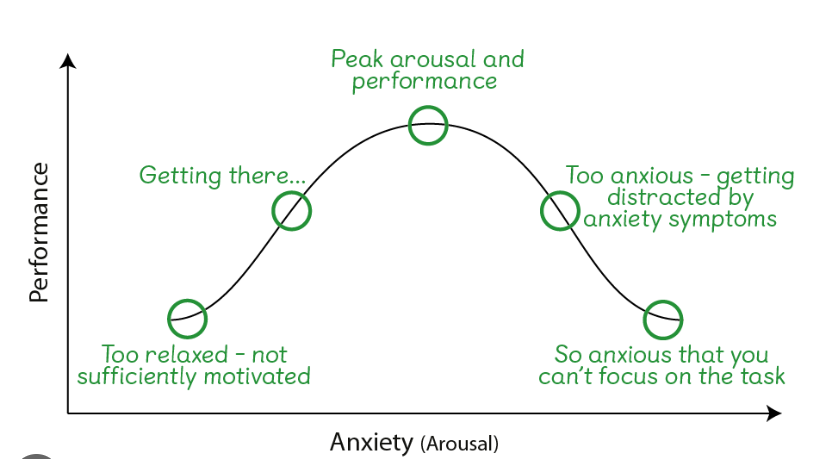Managing Academic Anxiety

This week, I had the pleasure of accompanying students to our exchange partner school, St Mary’s Anglican Girls’ School, located along the beautiful northern beaches of Perth. Despite the quick turnaround of flights, I enjoyed the opportunity to visit another girls’ school for a day and to compare notes, so to speak, on their school leadership experiences and focus areas for girls’ education in a post-pandemic world. This conversation dovetailed with my recent dialogue with school leaders at Wenona School and Queenwood, in Sydney.
Our shared school experiences include the common elements of managing the social ructions that normally occur across Years 7 and 8. We recognise at this age, girls learn to navigate social media, expand social circles, build new connections, and establish their identities outside the context of the family.
All of this is a very normal part of healthy development, but teenagers do not always perfect every step along the way. We know the prefrontal cortex is not fully developed until early adulthood, leaving adolescents often challenged with interpreting body language and facial expressions. As the prefrontal cortex develops and the capacity for abstract thinking grows, adolescents will be able to empathise more deeply with others, usually leading to an improvement in their interactions.
The other shared experience between the four schools was managing academic anxiety, particularly in senior students. Whilst it is normal to feel nervous and apprehensive before a test or exam, academic anxiety refers to more debilitating feelings of worry, tension or dread associated with academic settings and tasks. This can often lead to a negative effect on a student’s performance.
It is true that a high level of anxiety interferes with concentration and memory, but some anxiety is not a ‘bad thing.’ Without any anxiety, most would lack the motivation to study for exams, write papers or do daily homework. With this in mind, a moderate amount of anxiety is recognised as actually helping academic performance by creating motivation. Anxiety plays an important role in our lives and wellbeing.
This year, the development of our bespoke Academic Advisory Program in the Senior School aims to empower students with enhanced control over their learning. The Program has been authentically crafted in-house by our Deputy Principal – Teaching and Learning, Mrs Ceri Lloyd, and Head of Professional Practice, Miss Kristy Forrest. The Program specifically targets the needs of our learners at St Catherine’s.
The design of the Academic Advisory Program aims to link the capability of study skills with student self-efficacy and improved wellbeing. Based on the notion that good study skills benefit students’ learning, the Program is designed to enhance students’ feeling of control over their learning, and subsequently improve their wellbeing. Ultimately, this affirms the notion that education is a truly holistic endeavour. The Academic Advisory Program is structured around a series of three-week modules that align our Wellness Program with our Teaching and Learning Framework, visibly identifying what ‘good learning’ looks like in schools.
By way of example, our Year 11 students, many undertaking their first Units 3&4 VCE exams in the coming months, completed three Modules in Term 2. I encourage parents to talk to their daughters about the Program they are undertaking every Tuesday.
Module 1: Self-Efficacy: Developing a Healthy Mindset for Study
Module 2: Deliberate Practice & Agency: Study & Revision
Module 3: Agency & Independence: Managing Examinations
Whilst every school has its strengths and nuances, I was proud to share with my colleague’s interstate the innovation of our approach to helping students manage their wellbeing by lifting our focus on teaching the proactive behaviours every student can adopt for their own benefit.



